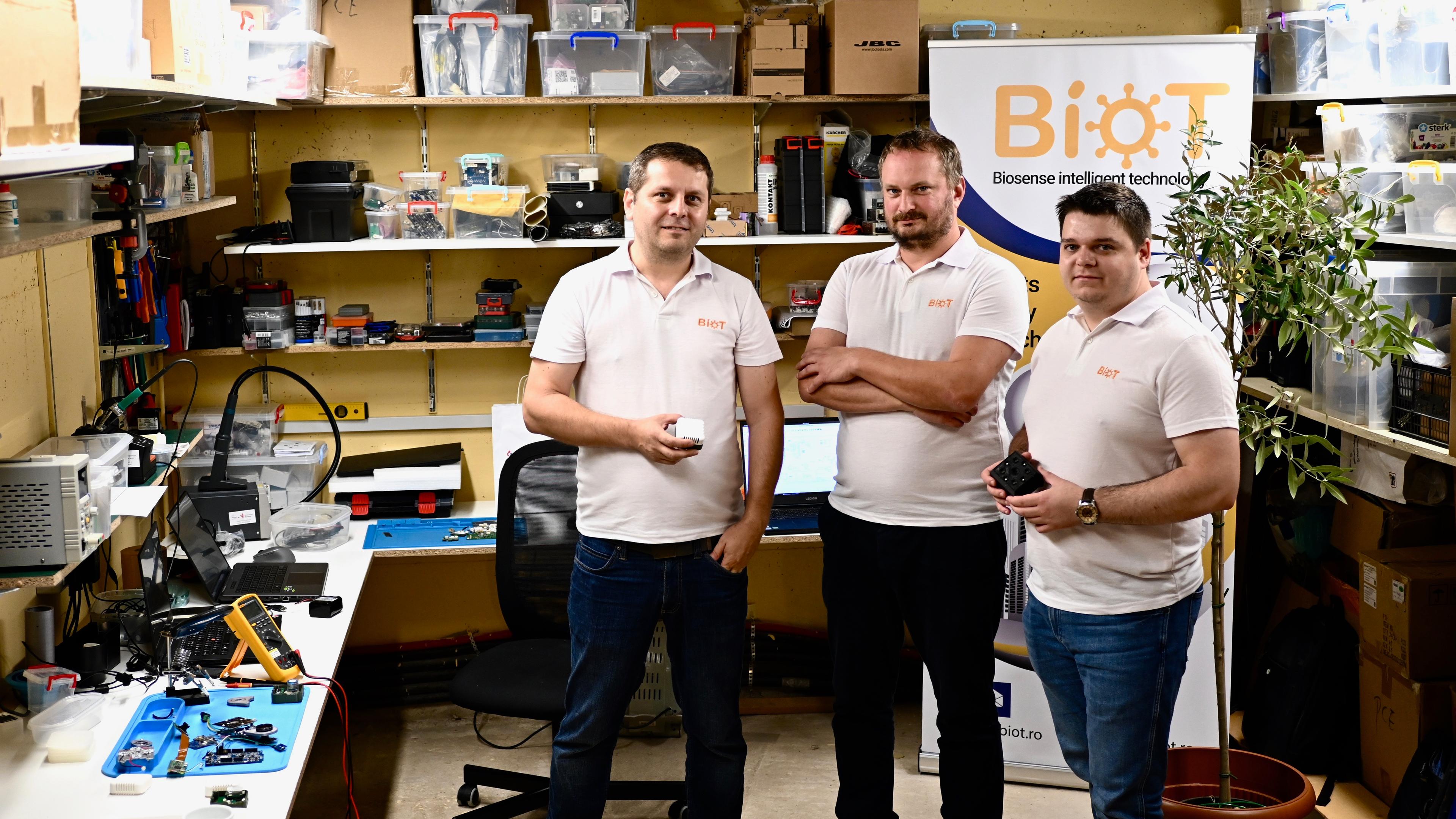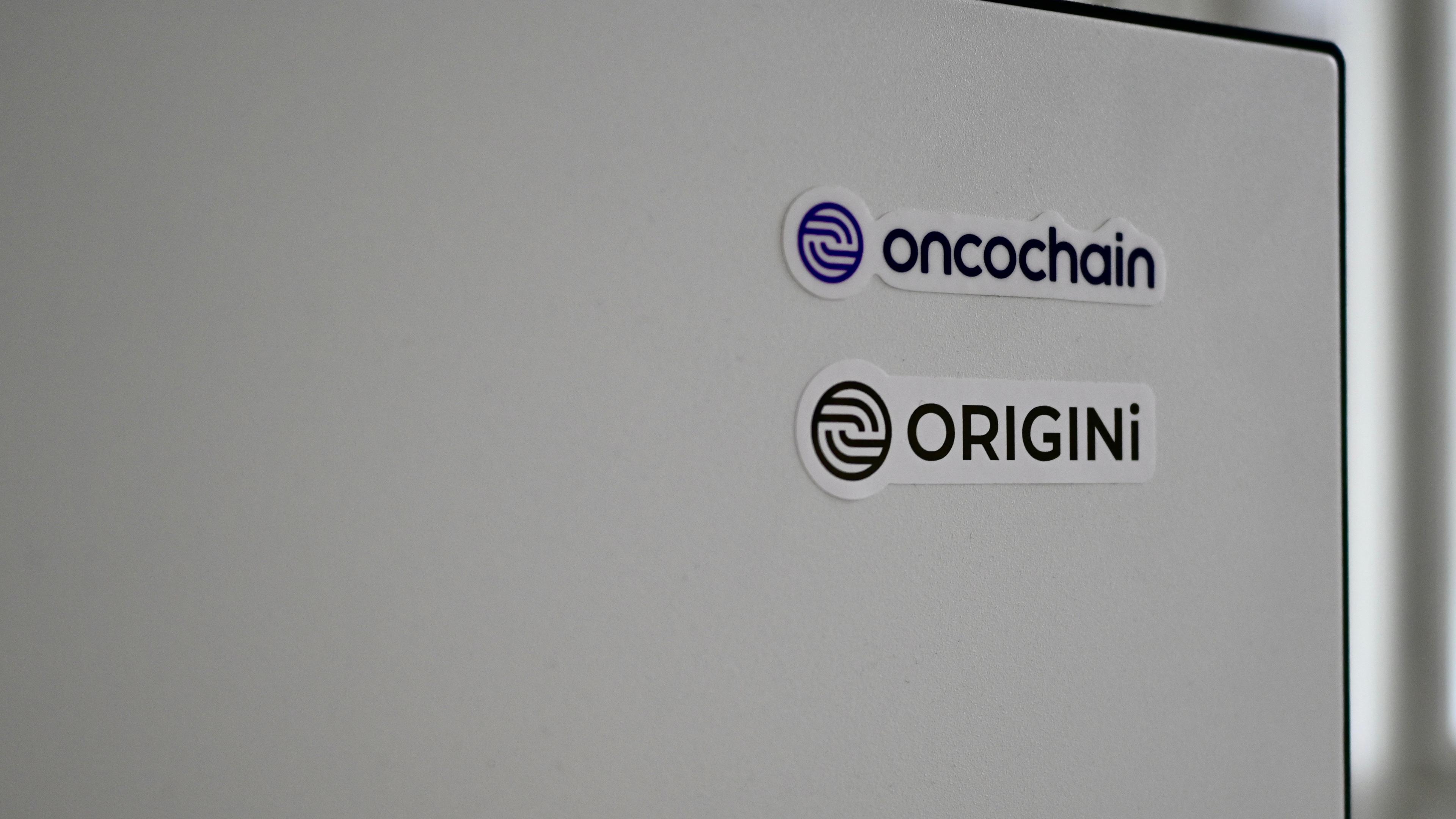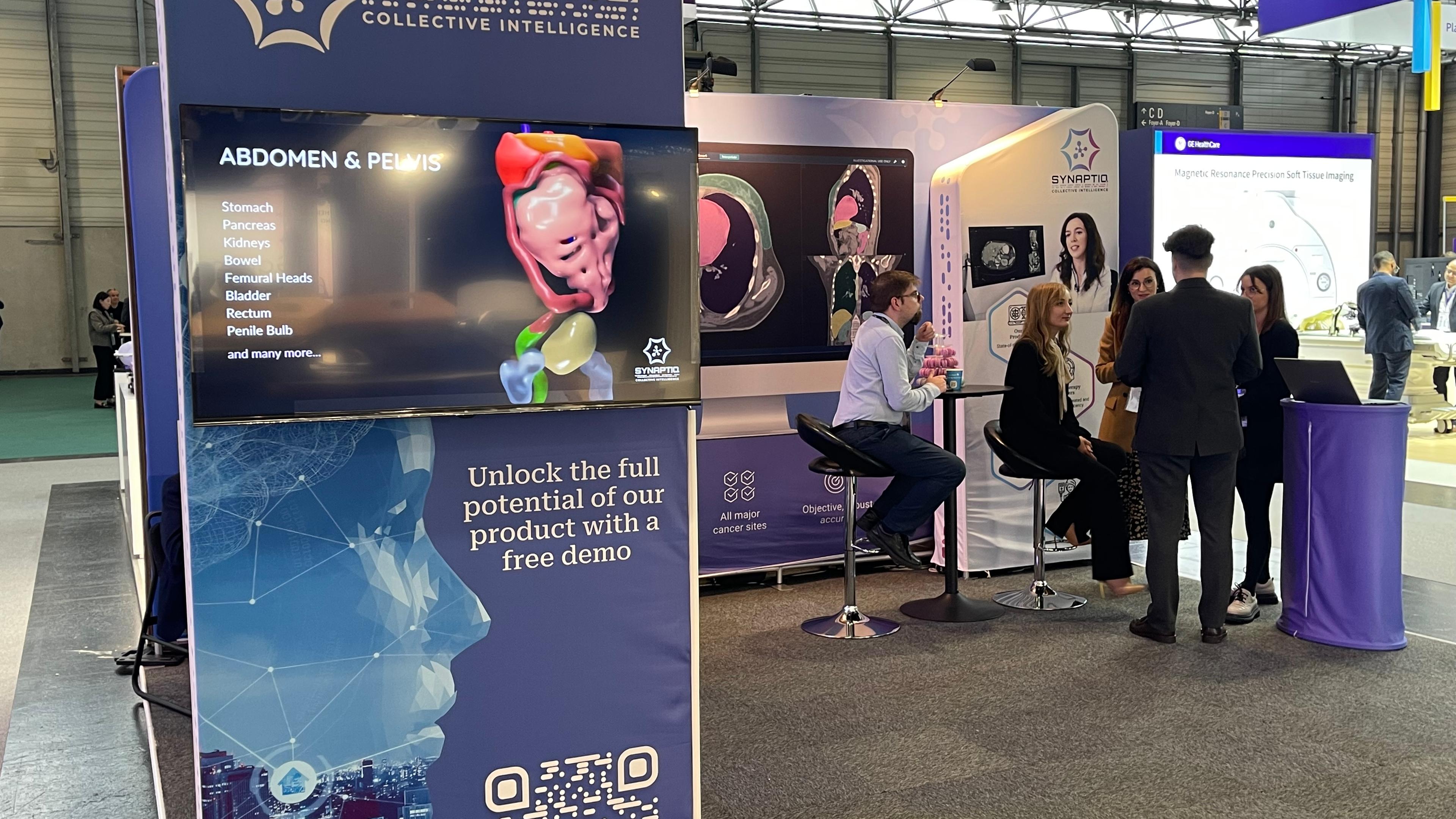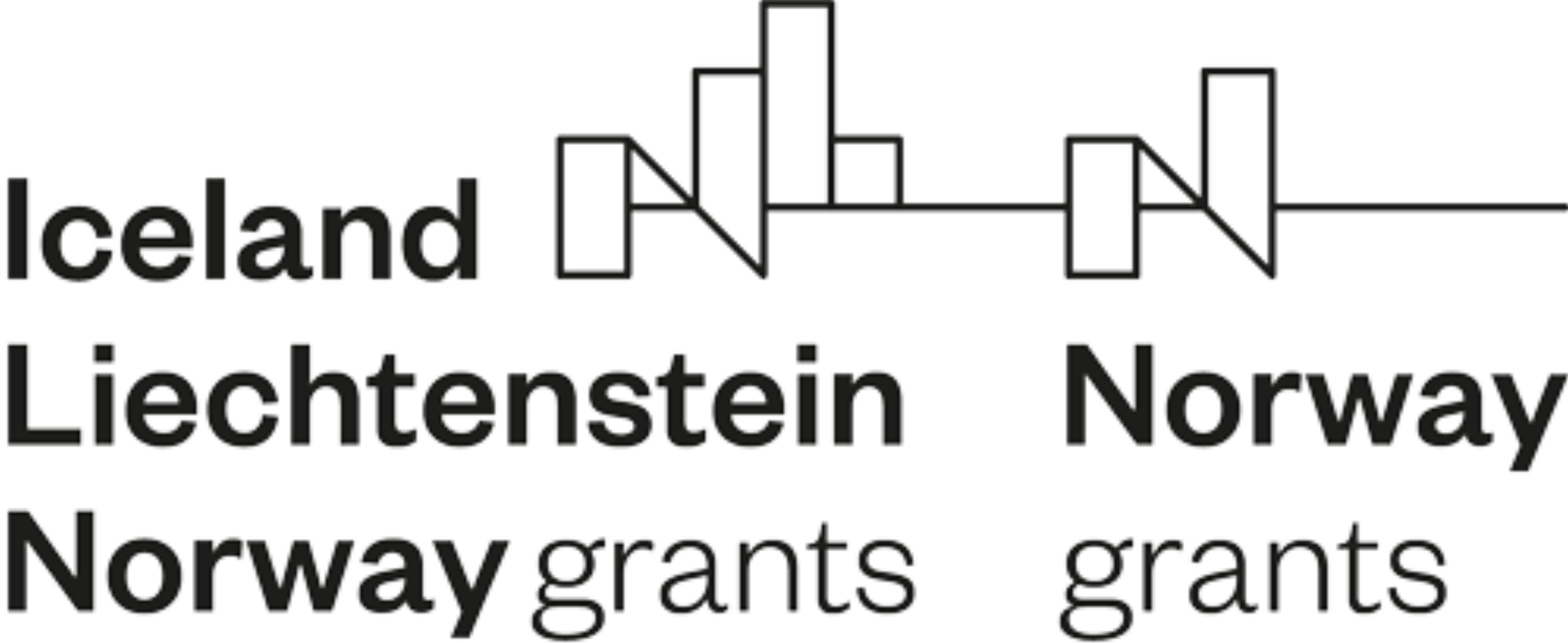Startups in the EEA and Norway Grants - Risky but rewarding
 © Eva Marie Bulai
© Eva Marie BulaiRevolutionising hygiene through smart devices
Step into a world where cutting-edge technology meets your everyday environment, and cleanliness takes on a whole new dimension. We introduce you to Biot, a Romanian start-up responsible for inventing a smart device, which tells you when it is time to clean.
Imagine strolling through bustling airports, luxurious hotels, and bustling schools, all while knowing that hidden sensors and lenses are working tirelessly to assess the level of cleanliness around you. Gone are the days of routine-based cleaning. With Biot's revolutionary device, cleanliness is no longer a guessing game – it's science.
Catalin Chitu (Biot): Instead of a cleaning company sending workers to clean at predefined intervals, they can send them when it´s dirty. Through this device they can gain knowledge about the level of cleanliness.
Innovation Norway meets the three founders of Biot in the basement of Catalin´s house. The three dynamic minds behind Biot have turned their expertise to a game-changing idea. Catalin Chitu, the visionary behind Biot, draws inspiration from the realm of agriculture, where disease detection in plants has already proven effective.
Catalin Chitu (Biot): The idea came from agriculture. In agriculture, you can detect if a plant is infected with a disease. So we said: “Let´s have the same approach for detecting infected surfaces, like in a kitchen or in bathrooms or maybe in transportation”
Air quality in classrooms
But Biot's brilliance doesn't stop at cleanliness. Venturing beyond, they've harnessed their expertise to develop a device that can measure CO2 levels in places like classrooms. Picture a teacher armed with real-time data about the air quality, poised to enhance learning experiences for students. It's a breath of fresh air in more ways than one!
Ion Popa (Biot): The efficiency of learning depends on the air quality in the classroom. The idea is to put a device like this and make the teacher aware of the cleanliness level in their classroom.
The Biot team decided to apply for the EEA and Norway Grants in order to boost the product and get it on the market. When we met them on the outskirts of Timisoara, they had just returned from a successful meeting in Luxembourg.
Catalin Chitu (Biot): The company we met in Luxembourg wanted to test the product to potentially become a distributor in the Benelux countries. In Timisoara, we are also discussing with the municipality about all toilets. Especially those mobile, plastic ones that are the most infested ones.
The excitement is palpable as they share their plans to conquer new territories and forge partnerships to extend their innovation across borders. With one foot in Luxembourg and another in Timisoara, the future is vibrant for Biot and their groundbreaking product.
Thanks to the EEA and Norway Grants, this revolution is possible. Empowered by the weight of these grants, Biot has secured even more funding, paramount for bringing their vision to life and change the way we think about hygiene forever. So brace yourselves! A world where smart devices redefine cleanliness is here, and Biot is leading the way.
Fighting bureaucracy in the medical sector
 © Eva Marie Bulai
© Eva Marie BulaiAnother startup situated in Timisoara is Oncochain (recently renamed Origini). We meet one of the founders, Madalin Margan, in their offices. Madalin is a medical doctor and he understands exactly how the state health system works.
Madalin Margan (Origini): In hospitals and doctors' offices today there is a lot of written information that gets lost on the way. The information gets stuck somewhere in the system. What do we do? We structure the data available and then we use Artificial Intelligence (AI) to extract data from free text that may be relevant for the patient’s story.
Madalin also adds that they have developed a mobile app so doctors can scan handwritten notes or external documents like prescriptions and convert them into text in a database simply by taking a picture with their phones. The documents are archived and will follow the patient. He estimates that 30%-40% of documents are handwritten notes today. The benefits of digitalising these notes are huge.
Madalin Margan (Origini): This is not a Romanian problem. It is a general problem in the medical sector that systems don’t work together. Data is silent. Data is not digitalised.
Innovation Norway: How will it make a doctor's working day easier?
Madalin Margan (Origini): Firstly, doctors would be able to access a patient’s documents very fast. With one click, they can have all documents of the patients, even the externally scanned ones. Secondly, because they have all the documents in one place, they can do research on a larger number of people. They have more patients to study, which is also very important. An added benefit is that doctors from different regions and from different hospitals can collaborate.
Oncochain/Origini already work with 20 hospitals in Romania. The product has been in production for almost two years, but the grant from Norway, Iceland and Liechtenstein through the EEA and Norway Grants helped them to add new exciting functionalities.
From hours to one second
 © Eva Marie Bulai
© Eva Marie BulaiRoxana Sabau and Dragos Duse belong to another medical startup in Cluj. The company is named Synaptiq and they just returned from one of the most important radiotherapy conferences in Europe. There they presented their new software for interpreting CT scans.
- One of the main things we noticed – our software is way, way faster, than our competitors. We were able to do real time demonstrations, while our competitors were only loading the already processed images. Most of the doctors who came to our stand thought we were also doing the same – just loading the images – and we said no, this is just how fast it is! We are just doing it real time.
Today a doctor can spend 5-6 hours on interpreting a CT scan. With the use of AI (artificial intelligence) the startup Synaptiq is revolutionising this process.
For instance, if a patient is going for a CT scan on their brain, the analysis can take about 1 second. If that patient needed to have analysis on 20-30 organs, than that would take about 20 seconds. This represents a huge improvement to the almost 45 minutes.
Answering a real need
Synaptiq is collaborating with the Norwegian company International Development Norway (IDN) through this specific EEA Grants project. The general manager of IDN, Anders Stølan, says this about the collaboration:
- Our impression is that the project idea is based on some real needs in the cancer treatment sector. Their root from medicine and the hospital area, combined with this strong knowledge of AI and their high ambitions is quite strong.
- How is it to collaborate with them?
- Our task has been to establish connections with the hospital Rikshospitalet in Norway. The willingness to share information and spend time is not so high. You need to meet face to face to establish personal connections. We have a plan though to invite Synaptiq to a workshop in Oslo.
Successful start-ups
When Synaptiq applied for the EEA and Norway Grants they already had a proof of concept and they had some contracts with hospitals in Romania that provided them with data. But they needed funding to turn the platform into production level.
Common for all the three startups mentioned in this article is their level of readiness and potential for success. Innovation Norway in Bucharest found these startups. We asked senior programme officer Mihai Stefanescu how he did go about to find them?
Mihai Stefanescu (Innovation Norway): Our plan was to have quality startups. Those who knew where they wanted to go. I simply went to a lot of networking meetings for almost half year, and then later I called them and said: We have money for start-ups. Are you interested?
He also emphasis that the call for startups from the EEA and Norway Grants, with Innovation Norway as fund operator, came at a good point in time.
Mihai Stefanescu (Innovation Norway): There was a whole in the market for financing startups. Innovation Norway organised around ten seminars open for those startups who had already gone through a startup accelerator. At every meeting we had around 20-40 startups attending, says Stefanescu.
Innovation Norway planned to organise one open call for applications from startups in Romania. Whether it was due to timing or the tailored efforts to mobilise the startups, interest in the first call was very high. The call received 45 applications for € 6,212,556. The funding available could only finance 14 projects with €1,724,264 in total grants.
Innovation Norway decided to organise a second call for startups. This call received even higher interest from the sector, and out of 55 applications, 33 projects were funded.
With a total of 33 projects by startups currently in implementation, Innovation Norway is eager to follow the results being achieved. According to Mihai, there is always higher risks in funding projects by startups, but the rewards can be greater too.
Mihai Stefanescu (Innovation Norway): “Supporting startups comes with inherent risks, but the rewards are equally substantial. The EEA and Norway Grants, have provided a platform for entrepreneurs (from 6 months to 4 year old) to flourish and transform their innovative ideas into tangible solutions. By nurturing these startups, we can drive economic growth, foster technological advancements, and improve various aspects of our society”.
About the SMEs Growth Programme
SMEs Growth Romania is a business development programme aiming to increase value creation and sustainable growth in the Romanian business sector. The Programme is part of the EEA and Norway Grants 2014-2021. The EEA and Norway Grants aim at contributing to the reduction of economic and social disparities in the European Economic Area (EEA) and to the strengthening of bilateral relations between the Donor States (Norway, Iceland and Liechtenstein) and the Beneficiary States.
About Innovation Norway
Innovation Norway is the Norwegian Government's most important instrument for innovation and development of Norwegian enterprises and industry. Innovation Norway supports companies in developing their competitive advantage and to enhance innovation.
In Romania, Innovation Norway is managing two programmes: the Energy Programme and the SMEs Growth Programme.
